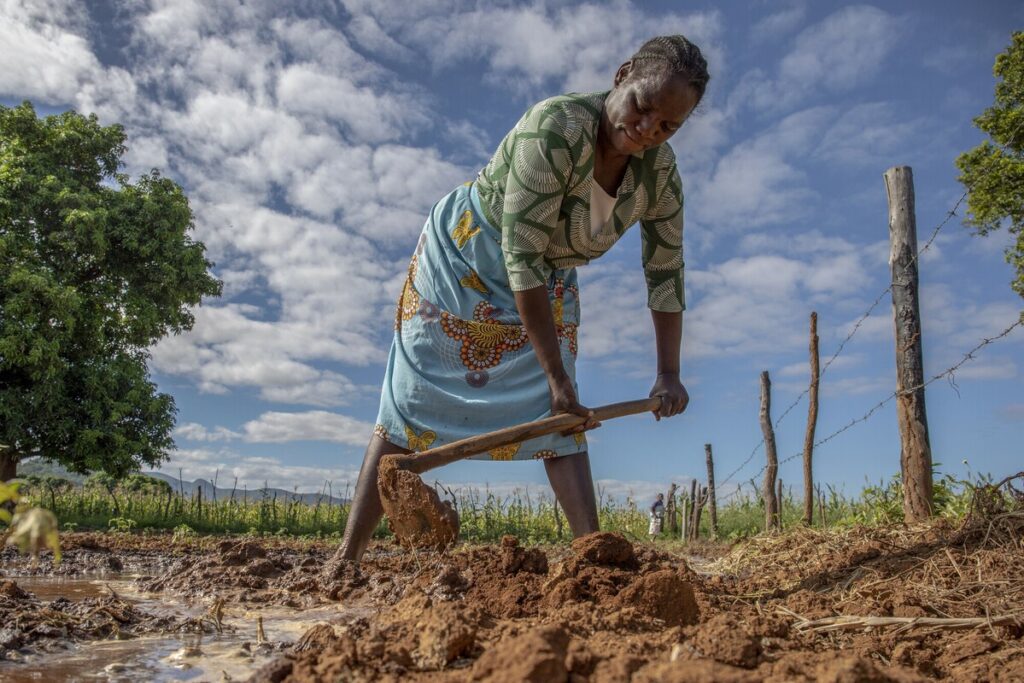
January 16, 2023
Max Lawson introduces Oxfam’s 2023 Davos report, ‘Survival of the Richest: How we must tax the super-rich now to fight inequality’ Walter is the father of my son’s best friend at school. He works nights as a security guard at a bank in the City of London. He has three kids. They are really struggling, as the prices of everything
Read more >>

Aid v Global Public Goods; the fear in the system and multi-dimensional poverty: A conversation with Norway’s Development Agency
November 11, 2022
Spent a fascinating hour this week shooting the breeze with Nikolai Hegertun and Petter Skjæveland from Norad, the Norwegian aid agency. They’d got in touch to discuss some of the obstacles and challenges they face, look for ideas from elsewhere that might work for them etc etc – I love this kind of conversation. Some highlights: Aid v Global Public
Read more >>

Who are ‘we’? Seeking African solutions to crises and funding gaps
August 2, 2022
Guest post by Eyokia Donna Juliet At the recent AU Humanitarian Summit, finding African solutions to African problems was an important theme. What will it take to walk the talk? In Ethiopia, Kenya, and Somalia now, it’s likely that a person is dying of hunger every 48 seconds. How many years of neglect, denial, and short-sighted decisions by policy makers
Read more >>

Africa is so rich in farmland – so why is it still hungry?
July 13, 2022
Guest post from Oxfam’s Anthony Kamande and Dailes Judge, ahead of this week’s African Union meeting It’s been more than two months since it rained in Nakuru County, Kenya, and Jane’s bean crop is long gone. Her only hope on her small plot of 0.8 hectares is the maize crop – but it will also be gone if it doesn’t
Read more >>
Hunger, Inequality and the Birth of Oxfam
May 18, 2022
This post by Oxfam’s Max Lawson first appeared on its Equals blog. I’ll be summarizing our new paper on the East Africa hunger crisis tomorrow. The other day I was speaking to Nellie, an old friend and primary school teacher in Malawi, about the rapidly rising prices: ‘Prices have risen, just since last month. Imagine a loaf of bread was
Read more >>
Why do we keep forgetting about dignity? 4 Ways to Address Dignity in Development Programs
March 23, 2022
Guest post by Annabel Dulhunty, building on this 2018 post from Tom Wein The idea of human dignity frequently appears as a lofty overarching goal for development agencies and programs. Dignity is fundamental to the Universal Declaration of Human Rights. Yet practical ways of addressing and measuring the dignity of program participants are frequently overlooked. For example, the preamble to
Read more >>
9 Great lectures/panels for you to catch up on over Christmas (or any other time) – see you next year
December 16, 2021
We’ve had a cracking series of lectures and discussions on our Friday afternoon LSE ‘Cutting Edge Issues in Development Thinking and Practice’ series, so I thought I’d post some links to the youtube videos and podcasts for those who are looking for some escape from the family Christmas (or otherwise just need some good brainfood). Grouping a bit by subject
Read more >>
World Inequality Report 2022: a treasure trove of trends and new data
December 15, 2021
The World Inequality Report 2022 came out recently, and it’s a total gold mine, as you’d expect from a summary of the work of over 100 researchers over 4 years from every corner of the globe (OK, I know globes don’t have corners, but cut me some slack here – I’m clinging on til the Christmas break). Here are some
Read more >>
8 mistakes to avoid in reporting an INGO’s contributions to the SDGs
August 19, 2021
Guest post from Ximena Echeverria Magariños and Jay Goulden, of CARE International INGOs have for many years felt the need to communicate how many people their programs reach in a year, but the numbers of people our programs “touch” doesn’t tell us anything about the difference they make in people’s lives. Increasingly, INGOs are seeking to report numbers of people
Read more >>
What sort of UK aid programme is emerging after the cuts?
June 2, 2021
Last week I posted a bit of a rant about UK aid cuts. The next day, Ranil Dissanayake had a piece on CGD’s blog looking at what kind of post-cuts aid programme is emerging under the Foreign, Commonwealth and Development Office (FCDO). It’s brilliant, so I asked to post an abridged version (the original is roughly twice as long).
Read more >>
The UK aid cuts have been a political & human train wreck so far, but that could/should change
May 25, 2021
What is going on with the cuts to the UK’s aid budget? Judging from first impressions, the axe is being arbitrarily taken to a lot of really good aid programmes, with no overall plan or rationale. Surely that must be wrong – this is a £10 billion budget we’re talking about, even after the cuts. Any manager knows that budgets
Read more >>
It’s often easier to have policy impact with research on a ‘new issue’, but proving it is just as hard
May 19, 2021
Next up in my series of interviews on the real-world influence of researchers at the LSE Centre for Public Authority and International Development, I explore the impact of Claire Elder’s work on Somalia, which raises a whole host of issues around how research can influence policy and practice: How the act of researching for a PhD can itself lay the groundwork
Read more >>